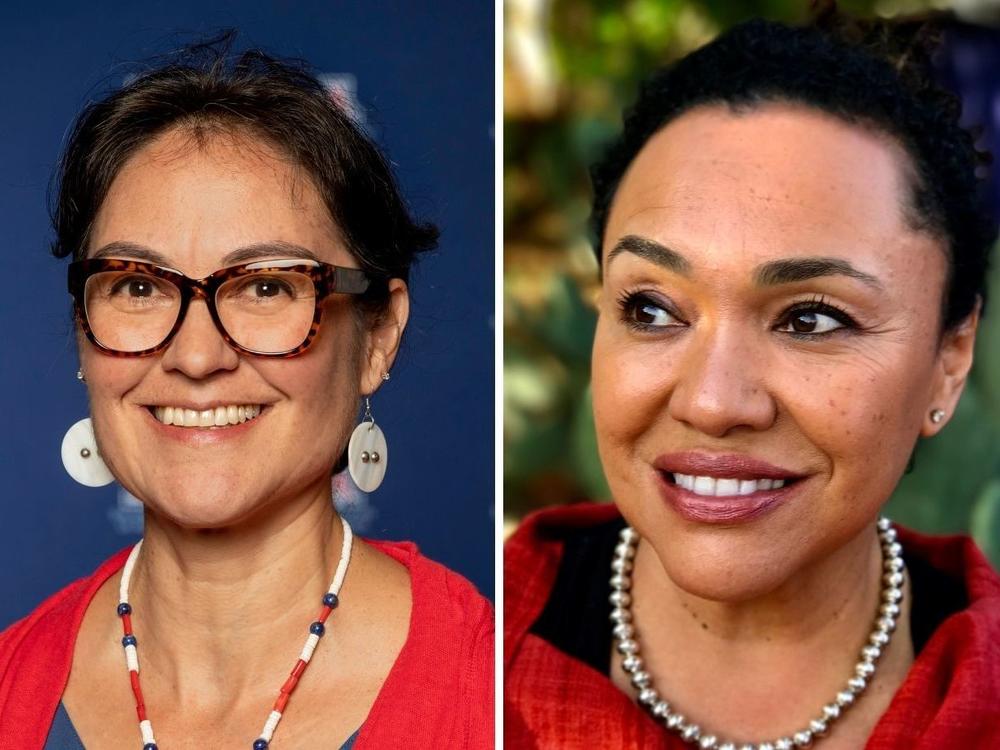Section Branding
Header Content
Here are the White House's picks to lead the National Arts and Humanities Endowments
Primary Content
Updated October 5, 2021 at 5:09 PM ET
The White House has announced who it would like to lead the arts and humanities endowments.
To Chair the National Endowment for the Arts (NEA), President Biden's nominee is Dr. Maria Rosario Jackson, a longtime arts and humanities administrator and professor in the Herberger Institute for Design and the Arts (HIDA) at Arizona State University.
For the National Endowment for the Humanities (NEH), Biden has selected Shelly Lowe, a citizen of the Navajo Nation who is currently the Executive Director of the Harvard University Native American Program. If confirmed, Lowe would become the first Native American to Chair the NEH.
The NEA and NEH fund hundreds of thousands of arts and cultural programs throughout the U.S., from poetry competitions to scholarly research to major dance companies. The Chairs of each federal agency need to be confirmed by congress and serve four-year terms.
According to the White House, Dr. Jackson has spent the last 25 years "focused on understanding and elevating arts, culture and design as critical elements of healthy communities."
"As the daughter of an African American man and a Mexican immigrant woman," Jackson wrote in a research paper earlier this year, "I watched my parents resort to the arts and to the particular expressions of their respective cultures because they feared that without intentional exposure to Black and Brown people who could express their fullest humanity, my brother and I might actually believe the narratives that they were sure we were confronting daily."
Shelly C. Lowe grew up on the Navajo Reservation in Ganado, Arizona. She's held positions at Harvard, Yale and the University of Arizona and served on boards of the National Indian Education Association and the Smithsonian's National Museum of the American Indian.
"To me humanities is about place and time," Lowe told The Harvard Gazette in 2016. "It's the essence of a city and its people. It's the feel of the land and the people who move through it daily. It's the beauty of community and the energy encompassed within it. It's a piece of time that is captured, shared, and then forever ongoing through memory, story, and learning."
Both Lowe and Jackson were appointed to the National Councils that advise the arts and humanities endowments. If they are confirmed, they would vacate those seats.
The arts and cultural sector, which employs more than five million people, has been devastated by the pandemic. According to the White House, "the unemployment rates for the cultural community spiked to among the highest in the Nation." President Biden's American Rescue Plan set aside $135 million for both the arts and humanities endowments, nearly double the amount that was available to cultural groups in President Trump's CARES Act.
Within the arts world there was hope that Biden would create a cabinet-level position to oversee the various government entities that have cultural programs such as the Department of State's Art in Embassies and the Department of Education. So far, that hasn't happened.
Copyright 2021 NPR. To see more, visit https://www.npr.org.

